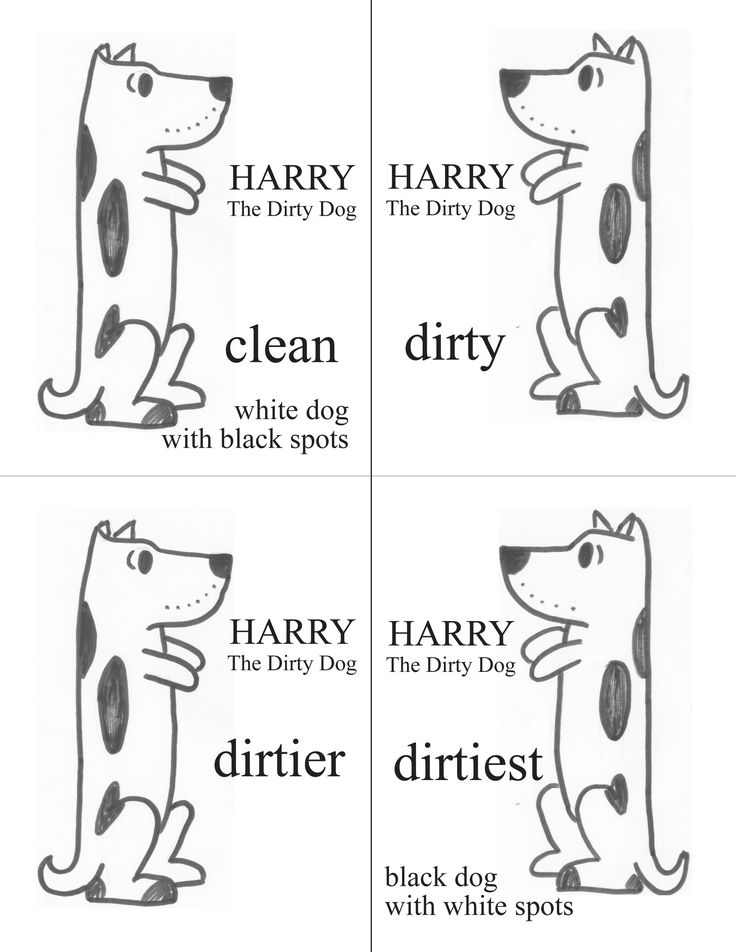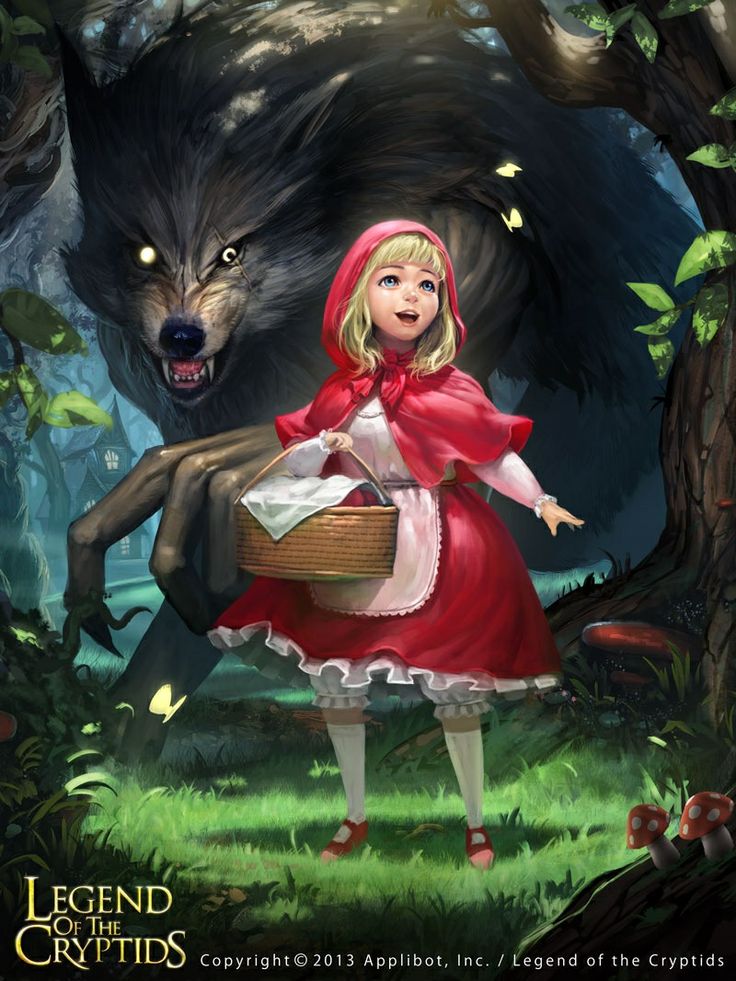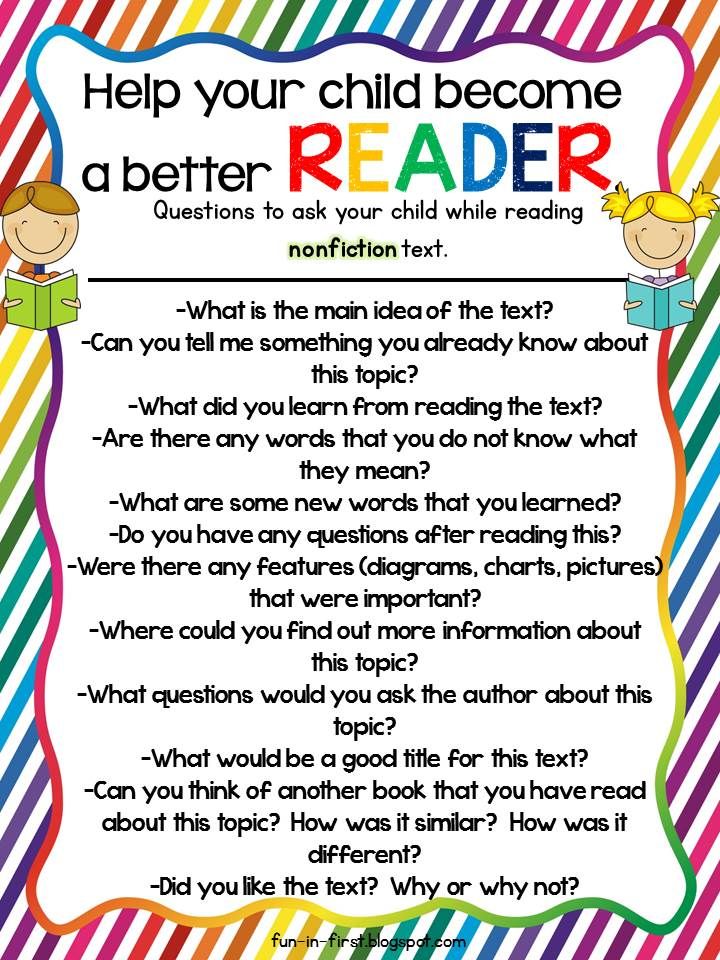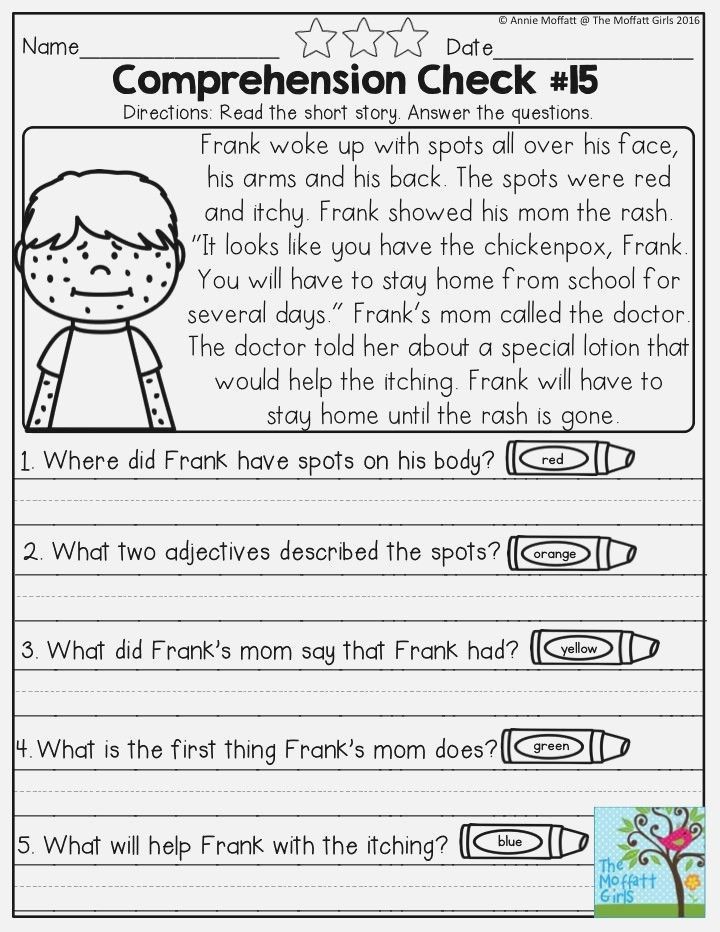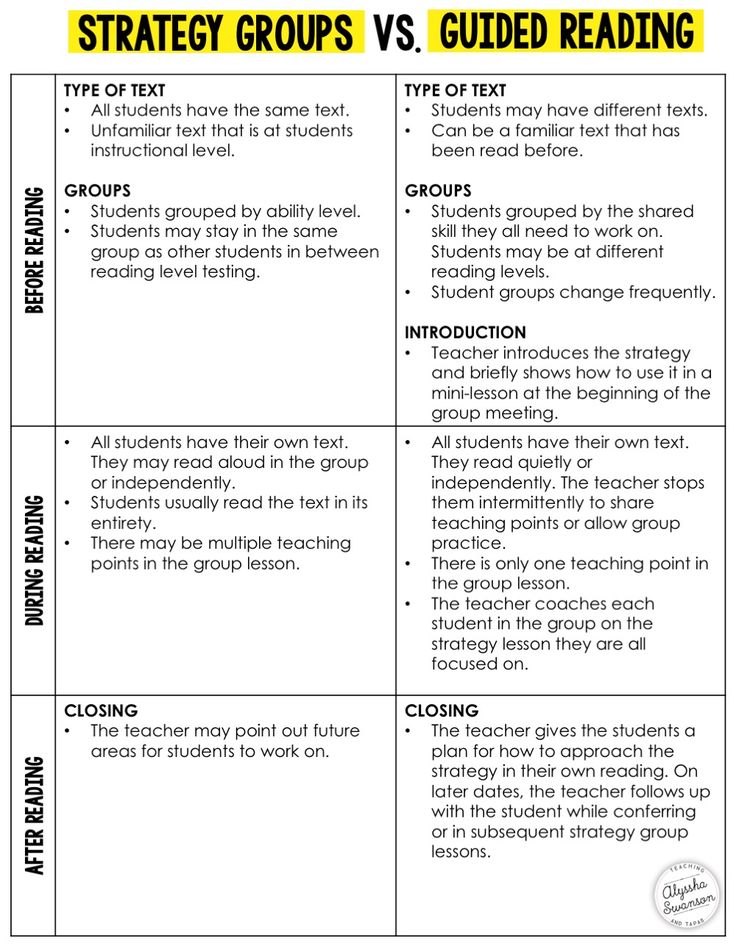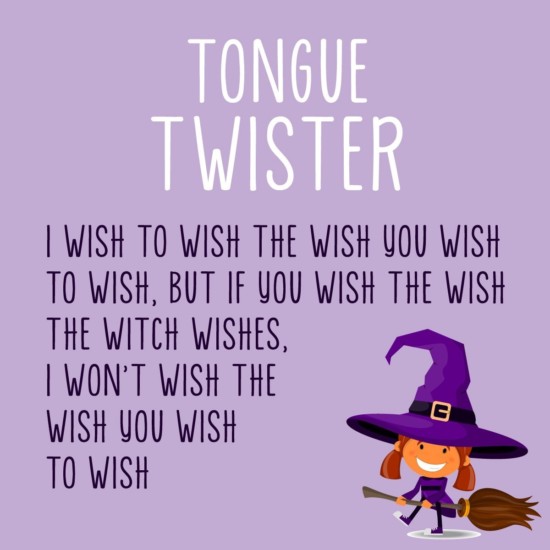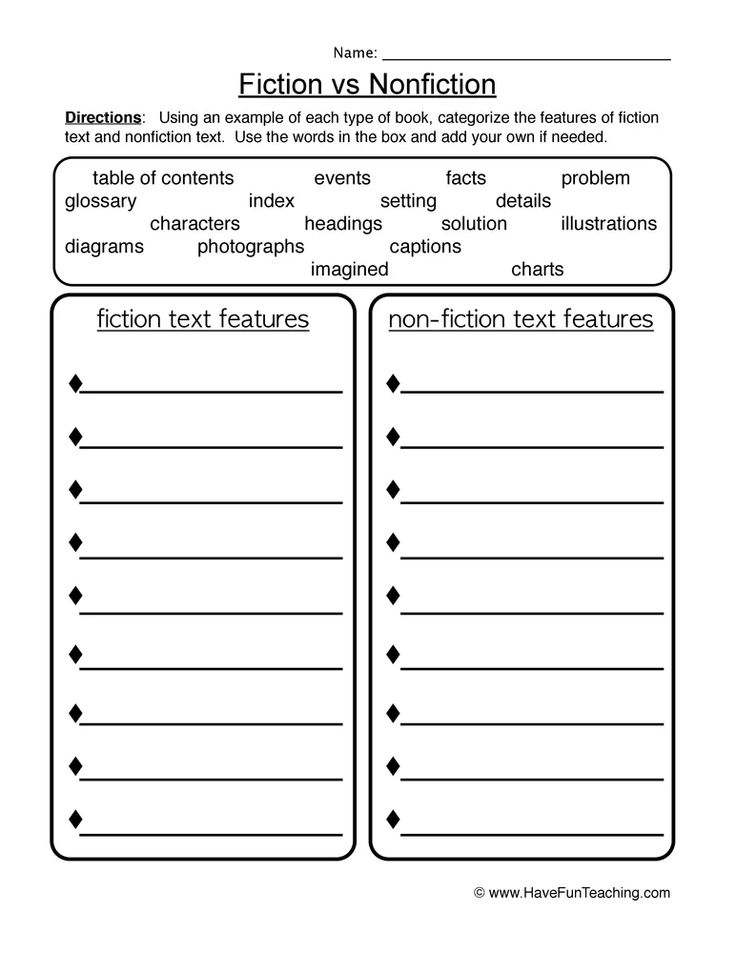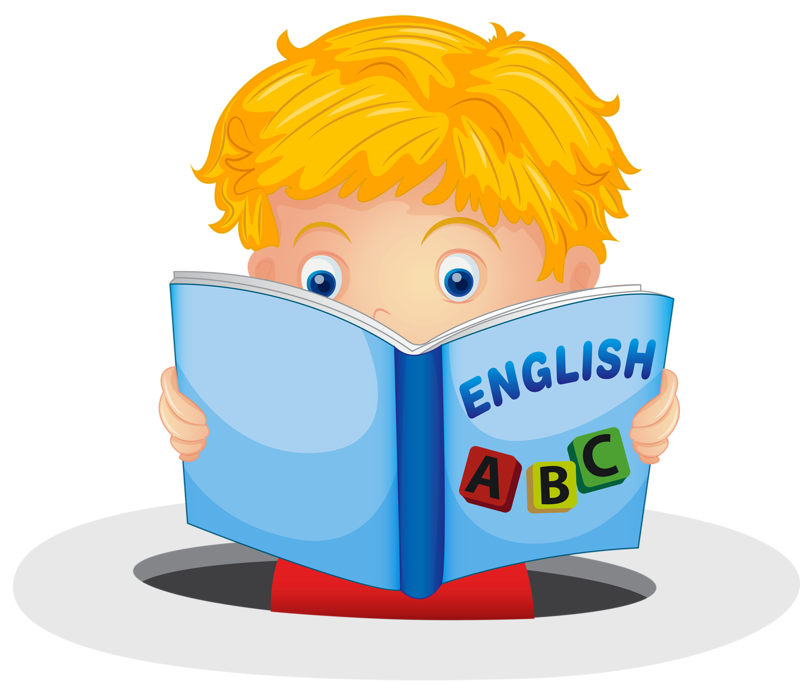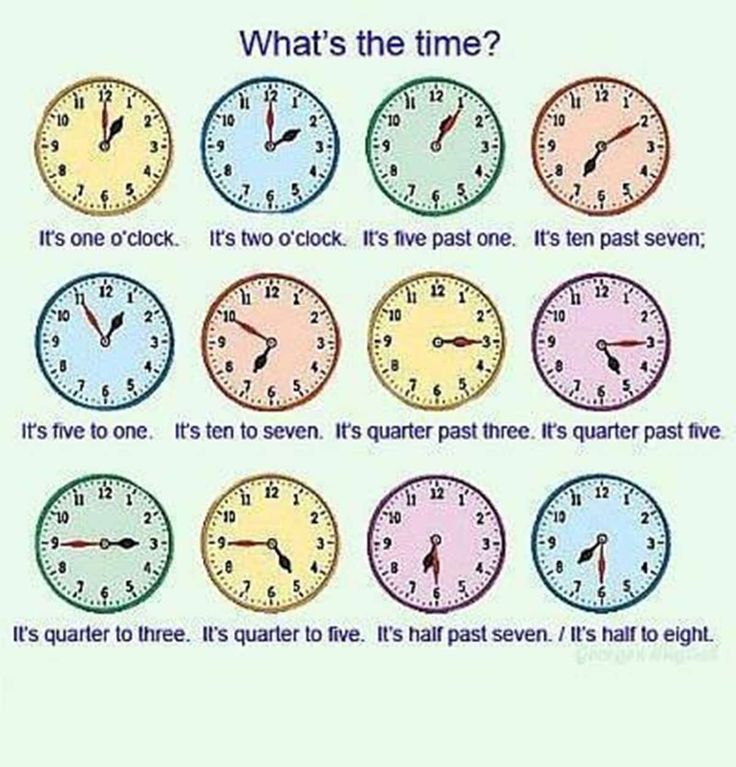Fun with compound words
The 8 Best Compound Word Activities You Need to Try
What do meatballs, butterflies, and cowboys have in common? Not much unless you are teaching compound words to your students this week. This topic can be so fun to teach because of the many different ways you can approach it. Whenever possible, I try to make sure all types of learners’ needs can be met through teaching and activities. I put together a list of some of my favorite compound word activities.
Some of these activities are perfect to use in morning work or literacy stations after students know how to do them. Introduce them during whole group time and then let students keep practicing. These compound word activities were always a hit in my classroom. Most importantly, they helped my students really learn and understand this concept.
Before I jump into the list, I want to share the Compound Words Activities unit. It has everything you’ll need to be totally set for the week teaching compound words. It has a fun character and chant to help you introduce compound words. This unit also has a pocket book, flip book, and picture puzzles. It makes teaching compound words a breeze!
Amazon Affiliate links are used below at no cost to you.
1. Use a song to help you introduce or review compound words.
I love a fun song and video to either kick-off a new concept or to review as we learn. Dr. Jean’s Compound Boogie song is catchy and has great coordinating pictures. It has plenty of examples so your students will really get the hang of it. View it HERE.
2. Create an anchor chart for students to refer to.
A good anchor chart helps make learning visible and accessible to students. It serves a visual reference for students to look to. I love to make one with the definition of a compound word and a few examples. Then, as the week goes on, we’ll take a minute or two each day and add more examples as students come up with them.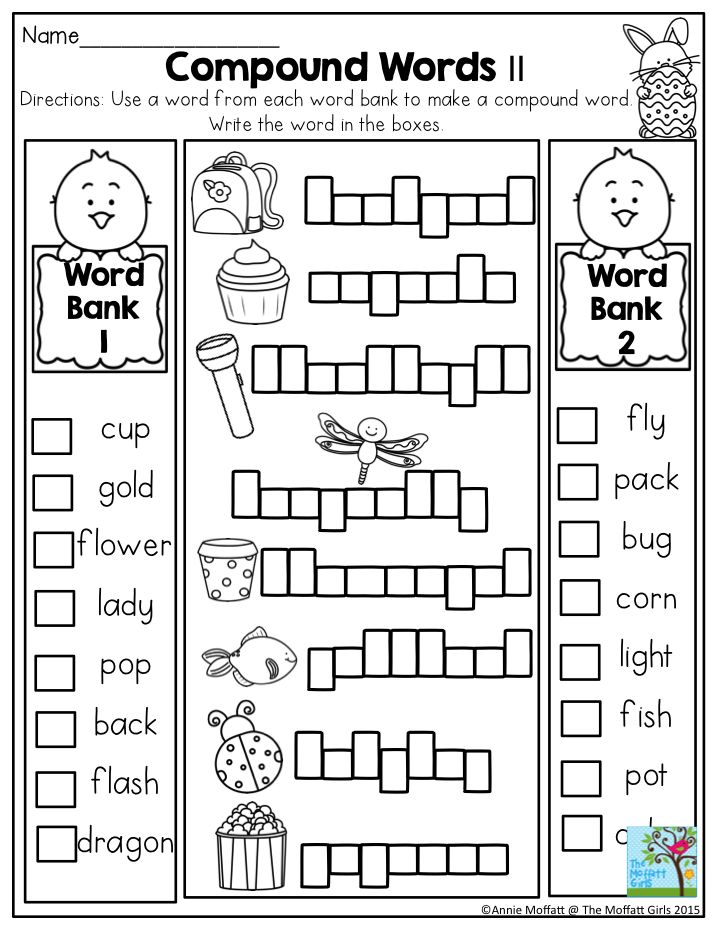
Another fun anchor chart to make is compound words that are food. There are so many! I did this as interactive writing. My students loved adding to this chart!
3. Use read alouds for students to practice listening for compound words.
Read alouds are powerful tools that can help reach auditory learners, build background knowledge, and help grow strategic readers. Read alouds also help you integrate topics, like compound words, throughout the day. While you read, have students listen for compound words. You can have them raise their hands when they hear one. Here are a few books to use for compound words:
- Cloudy with a Chance of Meatballs by Judi Barrett
- If You Were a Compound Word by Trisha Speed Shaskan
- Thumbtacks, Earwax, Lipstick, Dipstick: What Is a Compound Word? By Brian P. Cleary
- Once There Was a Bull…Frog by Rick Walton
4. Use Duplo blocks for hands-on practice.
Write words on the blocks by using my favorite Post-It tape on shorter Duplo blocks.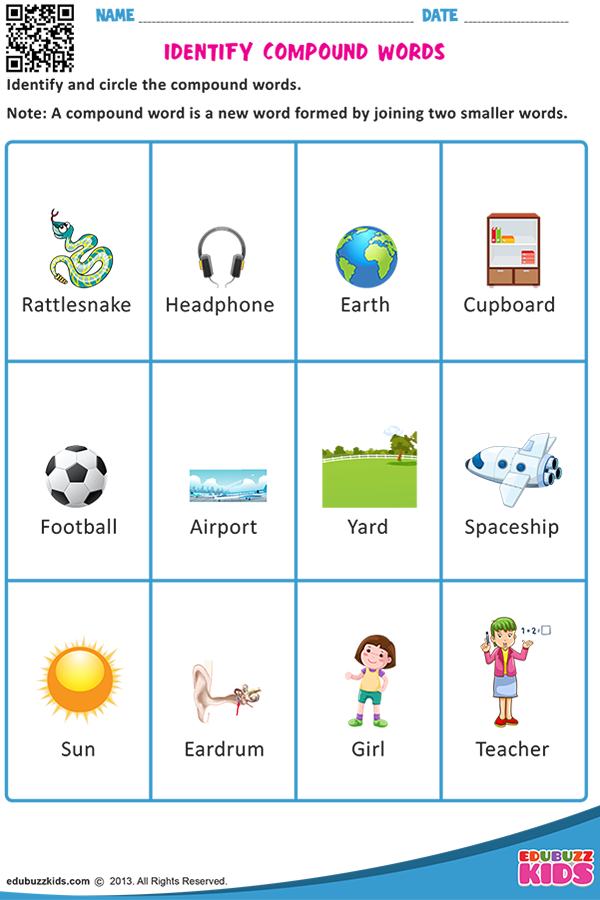 Have students place two short Duplo blocks together on a longer one to make a compound word. If you have very low-level readers, you can simply add pictures. You can have students write the new compound word they created and illustrate it if you want something you can check afterward.
Have students place two short Duplo blocks together on a longer one to make a compound word. If you have very low-level readers, you can simply add pictures. You can have students write the new compound word they created and illustrate it if you want something you can check afterward.
5. Implement self-checking puzzles.
Puzzles are such a great way for students to use their hands and brains while learning. Self-checking puzzles help students immediately see if their thinking is correct or not. Just write a word and draw a simple picture on each side of a notecard. For example, tree and house. Make a unique cut, like a zig-zag, and cut the notecard in half. Create several of these and mix them up.
In my Compound Word Activities Unit, I have this activity already done for you. Plus, there’s a recording page to make it easy for students to jot down their matches and for you to check them.
6. Introduce hands-on games to reinforce learning.
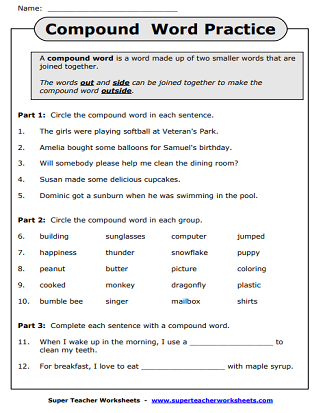
Most students in kindergarten, first grade, and second grade know how to play memory. Add a twist to the classic game with compound words. After you introduce this and model how to play, let students practice. Then, you can use it during morning work or in a word work or game literacy station.
- Make picture word cards for the compound word and its two individual words. For example, treehouse, tree, and house.
- Do this for several compound words.
- Next, flip the cards facedown.
- Students take turns flipping over three cards, saying/reading each one.
- Finally, if they flip over the three cards that go together (tree, house, and treehouse), they get to keep them and get a point.
7. Use online games.
There are several games online that you could use to let students practice identifying and making compound words. If you have iPads, you could use them in literacy stations. Check out what I found on YouTube.
- The Guess the Word Challenge is a video that shows two pictures.
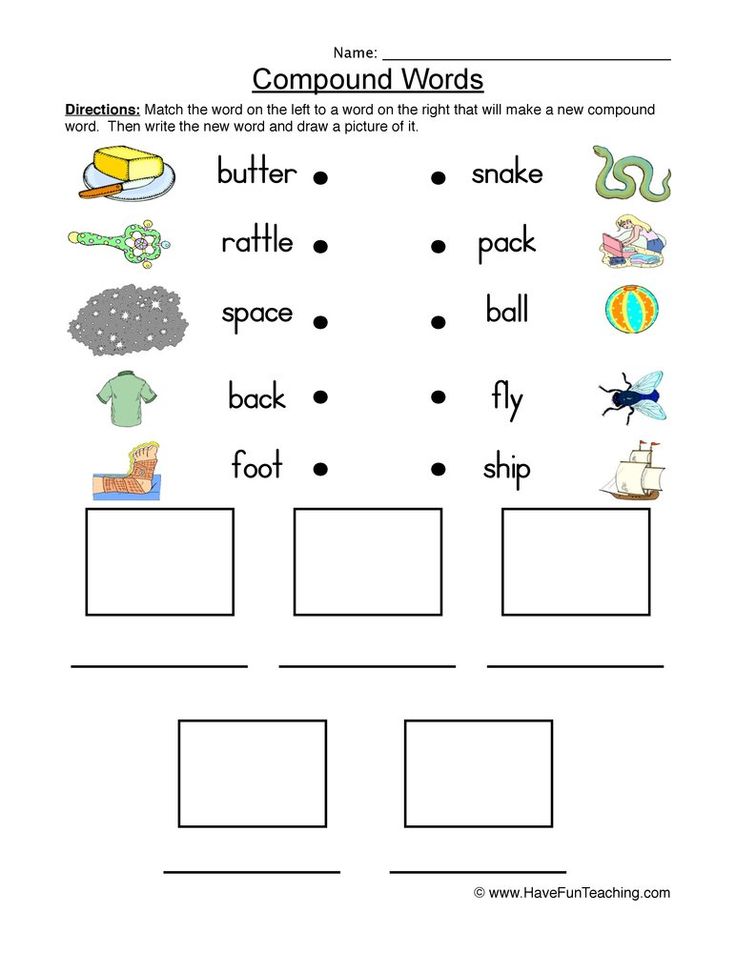 Students have to guess the compound word before the clock countdown ends.
Students have to guess the compound word before the clock countdown ends. - Similarly, The Compound Word Game is very similar. The main difference is this game does have some audio of someone saying the name of each picture, and the other game has no audio.
You can have students play two ways:
- Think, pair, and share the answer. Give a thumbs up or down if their partner got it correct.
- Let students write or draw the answers on whiteboards and hold them up to show you.
8. Sort compound words and not compound words.
Sorting is one of the higher-level compound word activities on Bloom’s Taxonomy. Show some examples of compound words with pictures and words that are not compound words. Have students sort them.
If you want this activity already all planned and done for you, my Compound Word Activities has this activity in it. Students make a pocket book and sort the pictures.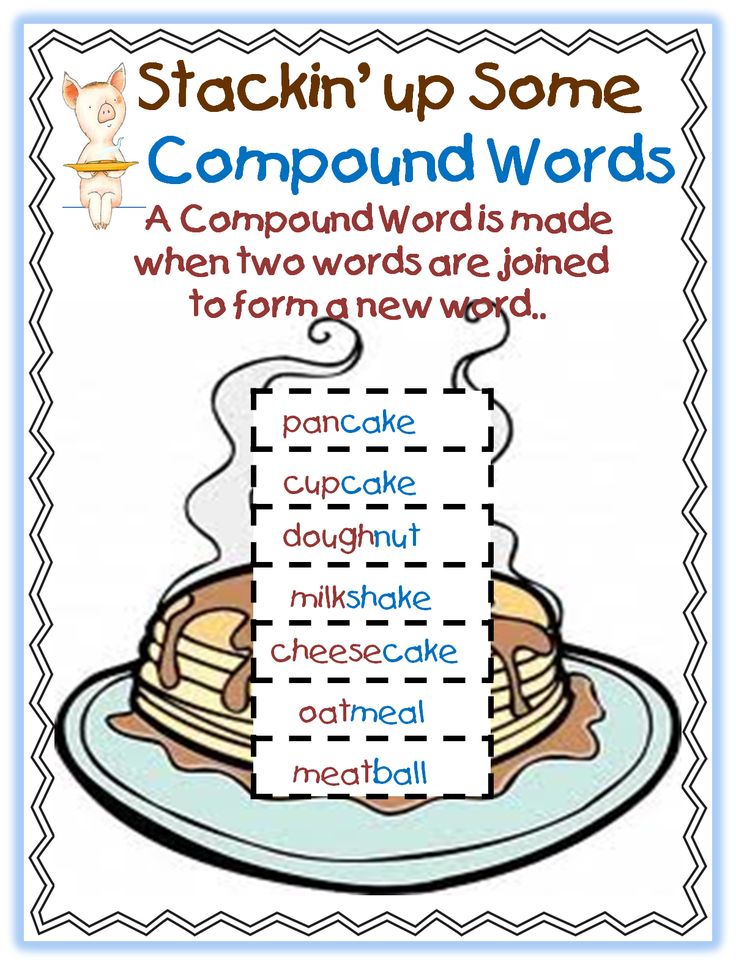 I love sorting this way because it’s interactive, and the students can take the pieces out, mix them up, and sort them again.
I love sorting this way because it’s interactive, and the students can take the pieces out, mix them up, and sort them again.
These eight compound word activities will be sure that the different types of students’ learning needs are met and support your ELL students, too. Remember that with any concept you teach, it’s important to add variety to your lessons and activities. As a result, students will be engaged and learn more effectively.
pin it
Do you have any must-do compound word activities? Leave a comment and let me know!
Shop This Post
Compound Word Activities Unit : This unit has interactive activities to help you teach compound words and help your students master this standard. It includes:
- Fun Compound Word Chant
- Compound Connection Puzzles (18 picture puzzles and recording sheets)
- Compound Connie (character used to help introduce the concept with activities)
- Pocket Book for Compound Word Sort
- Compound Flip Book (creating compound words)
Want to use the latest research to boost your readers during small groups? This FREE guide is packed with engaging ideas to help them grow!
20 Cool Compound Word Games for Kids
// by Jane Brooks
Learning about vocabulary is no longer confined to dittos and boring worksheets.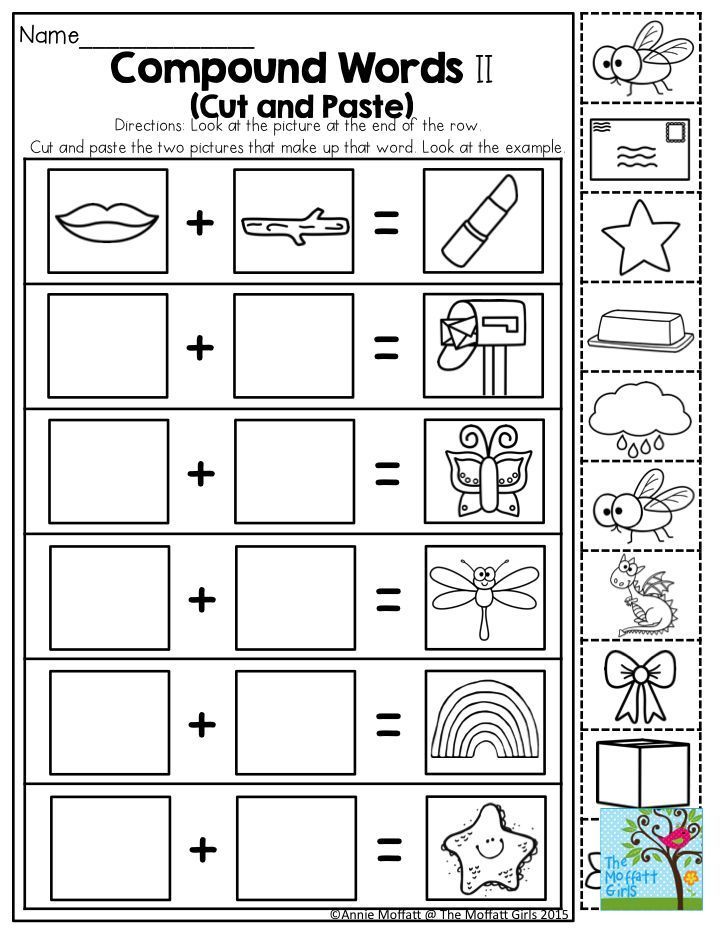 From online gamified lessons to interactive sensory activities, learning about literacy is more engaging than ever. We have curated a list of twenty fantastic activities to learn all about compound words.
From online gamified lessons to interactive sensory activities, learning about literacy is more engaging than ever. We have curated a list of twenty fantastic activities to learn all about compound words.
From literacy centers to individualized assignments, the list below has something for every student and teacher. Introduce compound words with a classroom sing-along or a collaborative class anchor chart.
Compound Word Online Games
1. Guess the Word
Students have several seconds to guess the compound word. Each round the students see 2 or more pictures. Children combine the picture words to create their compound words.
Learn More: Games 4 ESL
2. Nearpod
This online learning platform has multiple lessons and gamified practice opportunities for students. Teachers can filter by subject and grade. Lessons can be student-paced, where students work through the lesson on their own, or teacher-taught with students interacting with the lesson in real time.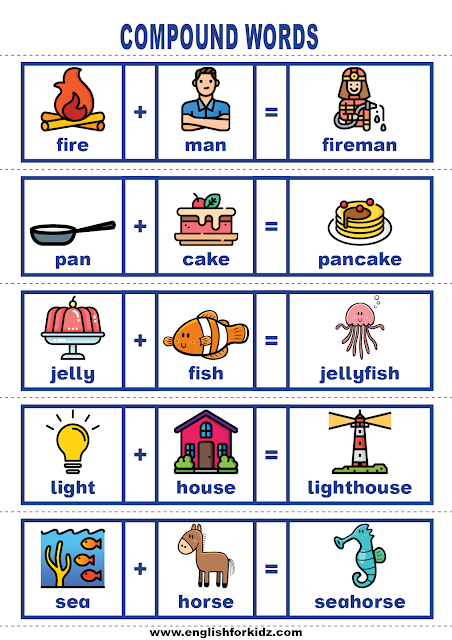 This is a great option for virtual learning days.
This is a great option for virtual learning days.
Learn More: Nearpod
3. Wordville.com
If you are looking for multiple levels of compound word online games, Wordville should be your go-to. It offers an online matching game where students pick different cards. If the cards do not create a compound word, the student is prompted to pick again.
Learn More: Wordville
4. Quia
Quia presents another version of the compound matching game. In this online game, memory meets matching. Students have to keep track of where the words are to create the correct compound words.
Learn More: Quia
5. EZSchool
EZ School offers three games. One is a traditional matching game. Another has students choose an elephant who is carrying a word that fills in the blank for the word given. The final option asks students to help the elephants cross the river by choosing the correct words to answer the clue.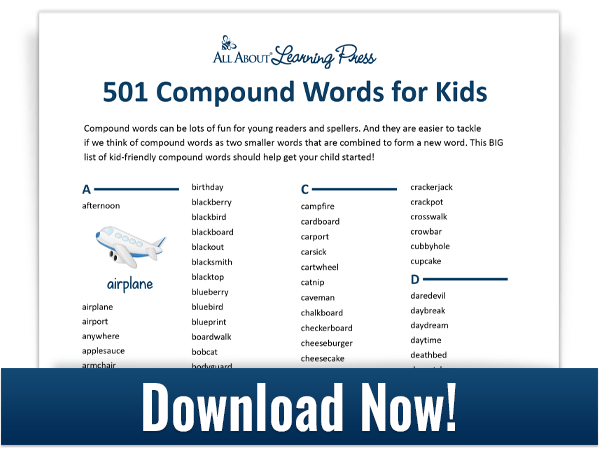
Learn More: EZ School
Compound Word Literacy Stations
6. Blooming Compound Words
This is a ready-to-go lesson for your literacy center. Students will work on their compound word skills along with fine motor skills. Students match flower petals to the flower center to form several compound words. They get additional practice writing out the word on their answer sheet.
Learn More: Stgiles School
7. Find the Compound Word
Another great literacy center activity where students get to search for the compound words in bins filled with rice or beans. Add a sensory component and make learning about compound words enjoyable. Students match the compound word pictures they find on their printable chart upon which the compound words are written.
Learn More: Happy Teacher Mama
8. Compound Word Puzzles
Create your own compound word puzzles.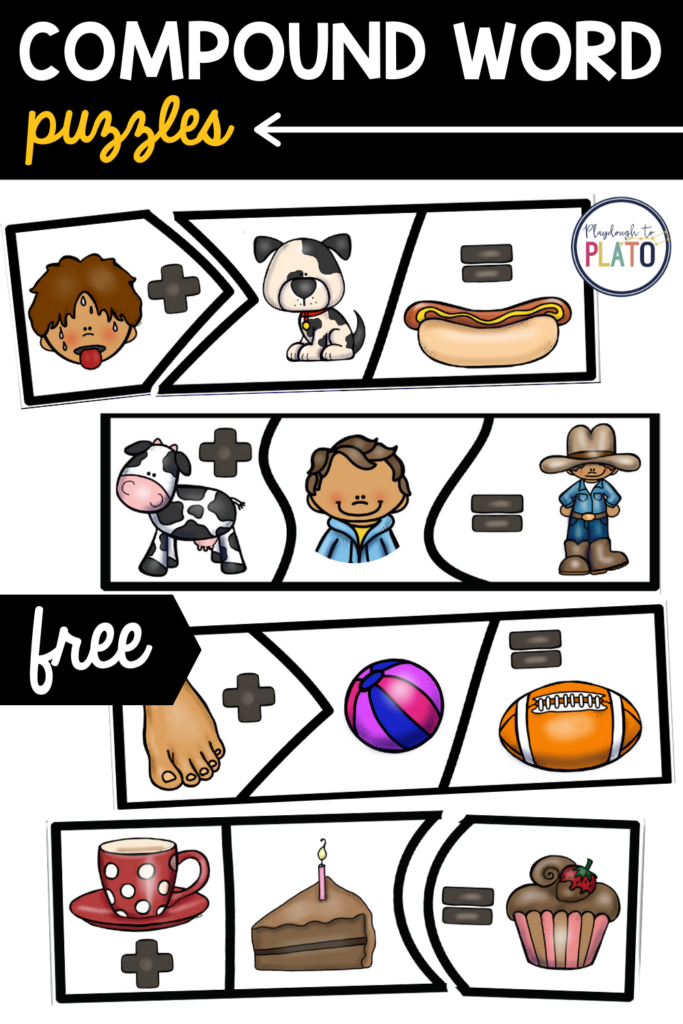 This is a great activity for 1st and 2nd-grade students who can work on literacy, motor, and critical thinking skills. This is a fun hands-on option for literacy stations.
This is a great activity for 1st and 2nd-grade students who can work on literacy, motor, and critical thinking skills. This is a fun hands-on option for literacy stations.
Learn More: The Curriculum Corner
9. Monster-Themed Compound Word Spinners
Looking for interactive activities for your compound word literacy center? Check out these crafty monster spinners. The spinners demonstrate how words can be joined together to form compound words.
Learn More: A Plus Teacher Club
10. Picture Addition
Using picture word cards and math symbols, students create compound words. You can do these as printable worksheets or create your own manipulatives.
Learn More: The Candy Class
Compound Word Activities
11. Compound Word Clip Cards
Work on motor skills and word skills with this hands-on activity. It is perfect for Pre-K - 1st grade.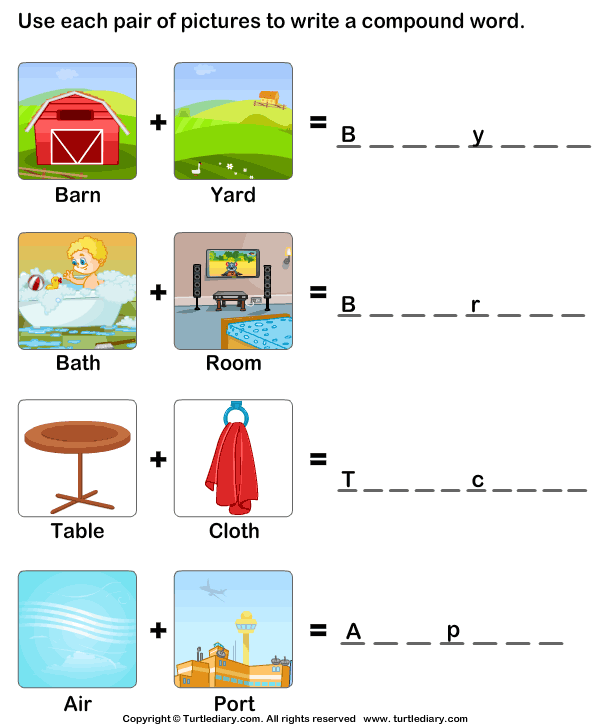 Use laminated compound word picture cards and clothes pins to create this one. The top has two pictures that create one compound word. Students mark the correct picture of a compound word out several on the bottom of the card.
Use laminated compound word picture cards and clothes pins to create this one. The top has two pictures that create one compound word. Students mark the correct picture of a compound word out several on the bottom of the card.
Learn More: Homeschool Rebecca Reid
12. Compound Word Flip Book
There are multiple printables available online to create compound word flip books. You can have students work on fine motor skills also by cutting on the lines. When the foldable is finished students look at the pictures to decipher the compound word. They open the flip book to check their answers.
Learn More: Teacher's Clipart
13. Compound Word Pocket Books
Check out Scholastic's online pocketbook offerings. You can print individual students' pocketbooks to take home and practice. Many are formatted so that students can color them as well.
Learn More: Scholastic Teachables
14.
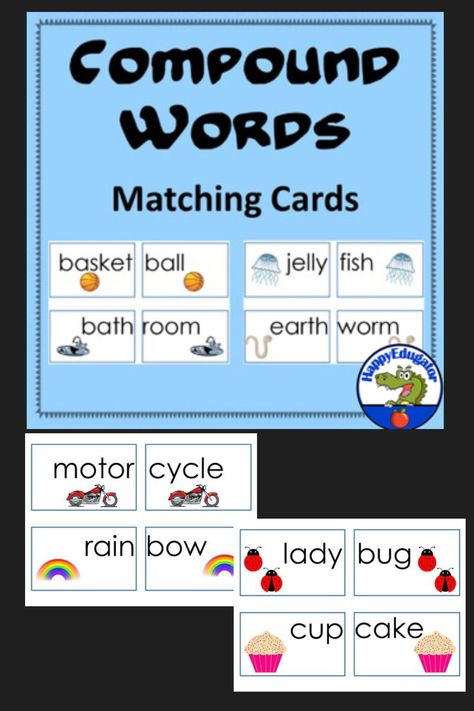 Vocabulary A-Z
Vocabulary A-Z This website offers many vocabulary study topics, including both printable and digital options. Among the printable options, you can choose from a simple matching activity to compound word quizzes.
Learn More: Vocabulary A-Z
15. Compound Words Toothy
Students view premade compound word equations on cards. They write their answer on the toothy board. If their answer is correct, they get to add another tooth to the face. This activity can be done as a group or individual activity as students can check themselves from the back of the word cards.
Learn More: Lucky Little Learners
Compound Word Games for the Classroom
16. Guided Readings
Get Epic is a favorite for all types of online book access. You can choose ones specifically to target compound words. Students can read along with you, do a choral reading, or read independently.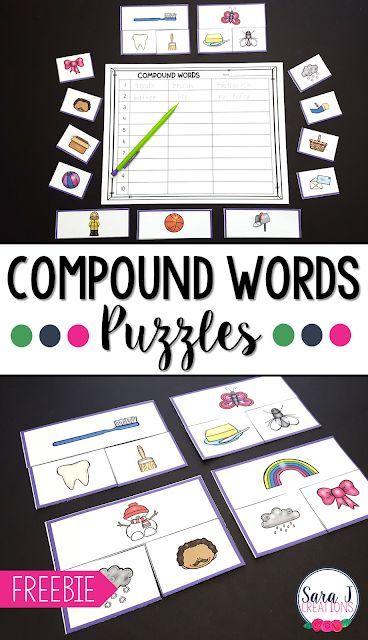
Learn More: Get Epic
17. Compound Word Poster
Jazz up your normal poster by adding a compound word of the day. You can find printable versions of compound word posters or buy them from online teacher supply vendors.
Learn More: Teach With Me
18. Compound Word Songs
Put compound words to music and have the students sing along. You can also find ready-made songs to sing with your class on Youtube.
Learn More: Jack Hartmann Kids Music Channel
19. Compound Word Pocket Chart
Create or purchase compound word wall cards. Use a pocket chart to create words with the cards. This is a great classroom activity to begin talking to students about compound words. You can also turn these into interactive literacy activities by putting them at the student level as a station.
Learn More: Walmart
20. Anchor Charts
Create a compound word anchor chart that defines the concept and has a few examples.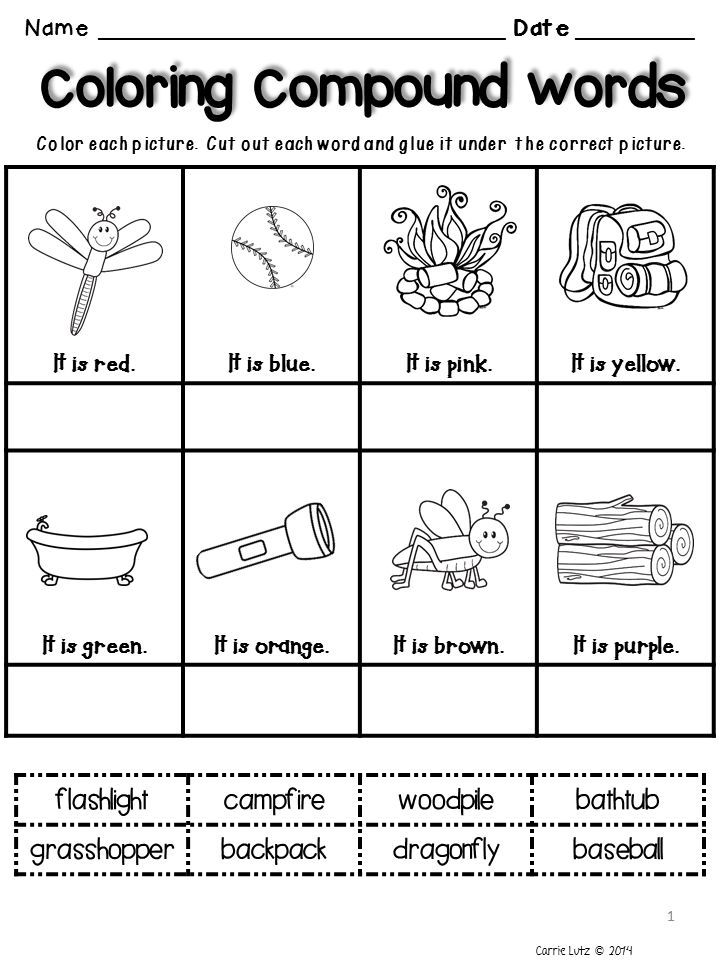 Have students think of their favorite compound word and add it to the chart. This activity not only creates a visual reference for students during independent work but also provides them with a sense of ownership over the learning process.
Have students think of their favorite compound word and add it to the chart. This activity not only creates a visual reference for students during independent work but also provides them with a sense of ownership over the learning process.
Learn More: Pinterest
Related posts:
Category: Classroom Ideas
Grade 1 sentence with the word "fun" (examples)
We all know what the words "fun", "fun" and "fun" mean. They indicate a good mood. The word "fun" is most often used in sentences that talk about something joyful and pleasant. Examples:
On the way to the village everyone sang cheerfully and loudly.
Lesya was happy that she could finally ride her brand new bike.
Not only children, but also their parents had fun, relaxing by the river and enjoying the beautiful summer weather.
Seeing the owners returning home, the Beetle barked cheerfully.
Bunnies jumped merrily across the flowering lawn.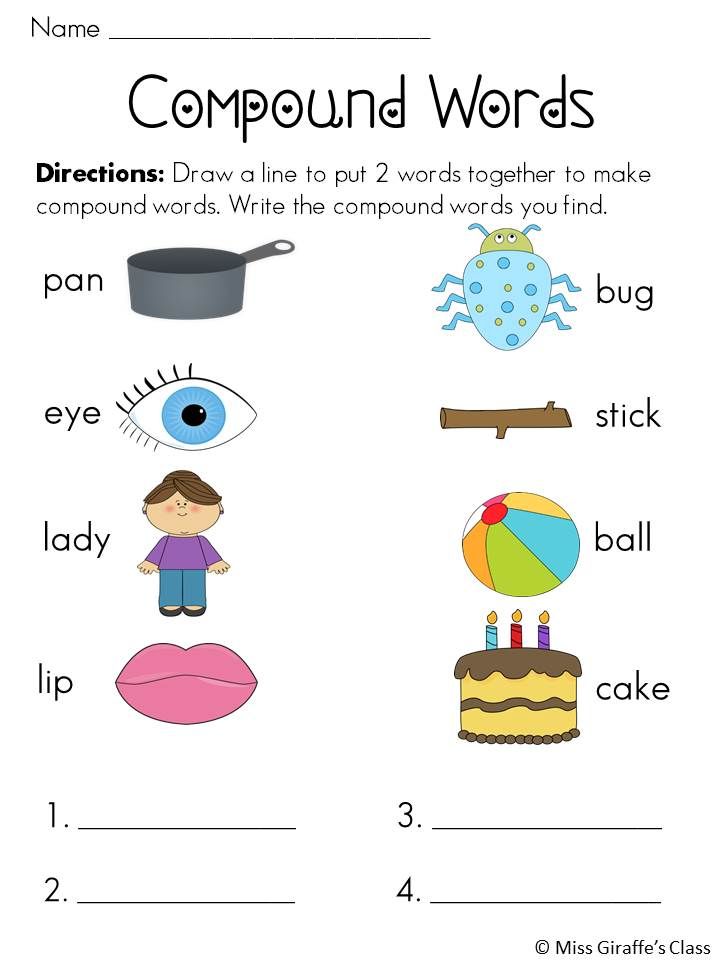
Petya told everyone how fun the holidays were at the summer camp.
Children were running merrily around the yard.
Sledding on snow slides is a lot of fun. nine0008
The girl's laugh was loud and cheerful.
Andryusha walked merrily along the street.
Participation in the competition was quite interesting and fun.
Hearing his joke, Svetlana Arkadyevna laughed merrily.
Birds chirped merrily on the branches of flowering trees.
When the music turned on, everyone went to the center of the hall and began to dance merrily.
The word "fun" can be at the beginning, in the middle or at the end of a sentence. It shows how or in what way a certain action is performed, or what was the mood of the person who performed it. nine0003
A number of examples could be given with the word “fun” at the beginning of a sentence.
It's fun to play different interesting games with your friends.
Cheerfully and cheerfully, Lena was cleaning things scattered all over the room.
It was fun to watch the little dog fetch the stick thrown by the boy.
It's fun to walk in the summer meadow and pick colorful flowers.
Vitya cheerfully told about the trip to the sea and about his new friends whom he met there. nine0008
It is fun to decorate clay pots with beautiful and bright patterns.
It's fun to run into a cold river on a hot summer day.
More often this word is used in the middle or at the end of sentences.
The guys worked together and cheerfully, and by the evening the birdhouse was ready.
Valera and Serezha constantly came up with some new interesting activity and discussed it cheerfully for hours. nine0008
Sonechka cheerfully waved goodbye and ran towards the house.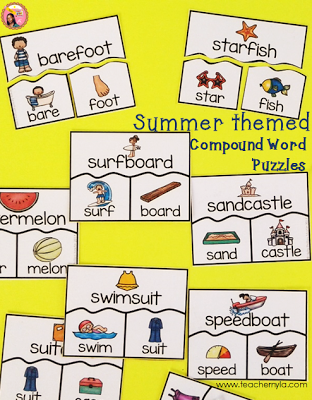
You need to joke so that everyone has fun.
The boys walked merrily along the street, looking at the shop windows with toys.
Manya and Zhenechka chatted so merrily that they didn't even notice how time passed.
Can't wait to see what you've got. You said it would be terribly fun.
They played football until the evening without feeling tired, and they had a lot of fun. nine0008
At first we were nervous about having to play on stage, but it soon became familiar and we even had fun.
Making a snowman with a bucket on his head and a carrot for a nose was a lot of fun.
If all the guys agree to come, it will be really fun.
They weren't so upset about the failed hunt: going out with friends in the fresh air was quite fun.
The word fun can also be used in the following forms:
- more fun, i.e. more fun;
- not fun, that is, not happy, but sad.
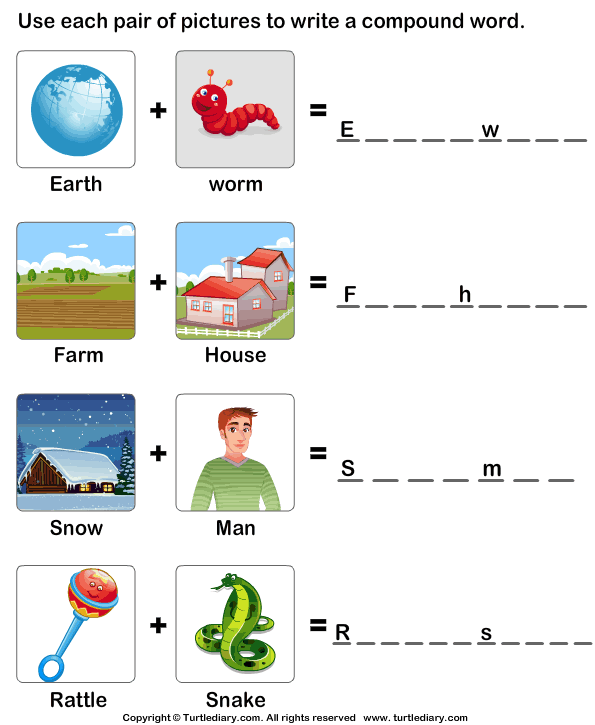
For example:
If my sister came with us, it would be more fun.
Her laughter sounded brighter and louder than usual.
Teasing people is not only ugly, but not fun at all.
It wasn't very fun to play without Tanya.
Riddles for adults with answers, logic and trickery
Logic riddles / For adults
Simple and complex riddles for adults on logic and trickery, the most interesting riddles and tasks for children and adults. There are more than 3500 questions and tasks on LogicLike to develop ingenuity.
Solve riddles online nine0179
and try courses LogicLike for the mind! Choose an age to start
15-24 years old
25-45 years
45+ years
nine0002 On LogicLike kids and adults are happy to solve riddles, solve problems and develop logic.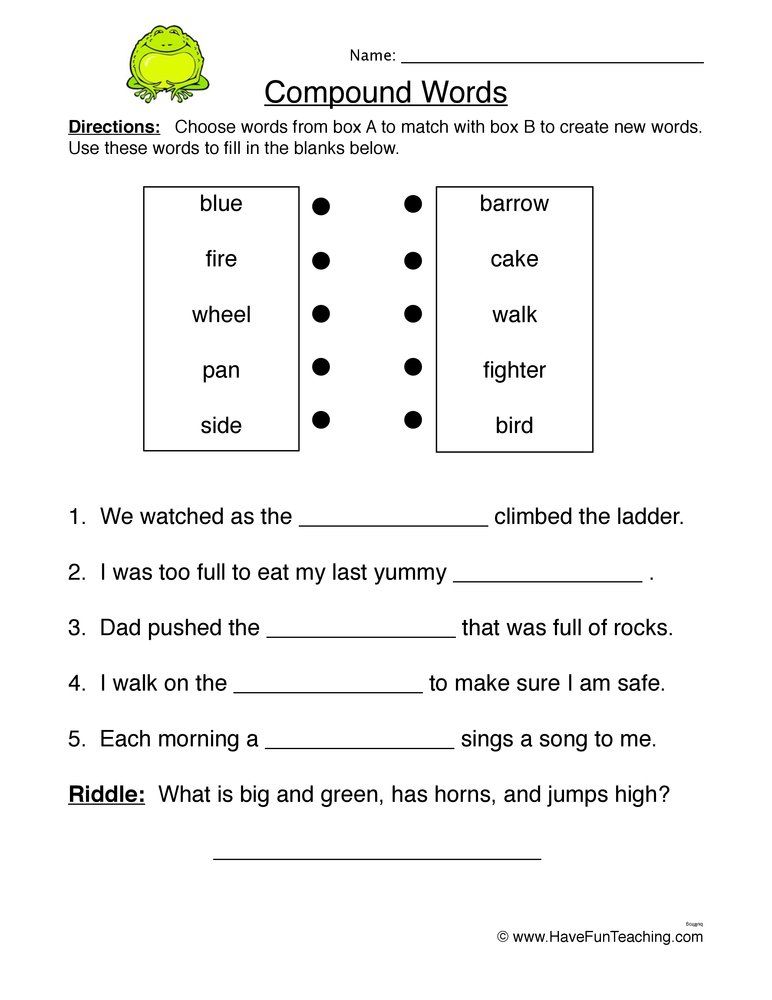 We have 300 types of questions and puzzles for all ages: 4-99 years 😉
We have 300 types of questions and puzzles for all ages: 4-99 years 😉 Were you just looking for 10-20 riddles for an adult company? go on to read!
Simple and complex, serious and funny logic puzzles for ingenuity and trickery will help cheer up and have a great time with any adult company. nine0003
Even if you have children with you, they will not have to cover their ears. The LogicLike Approach - Spend Time fun and exciting for the whole family!
Serious logic puzzles
Not ice, but melting, not a boat, but sailing away.
Find out the answer nine0003
Salary.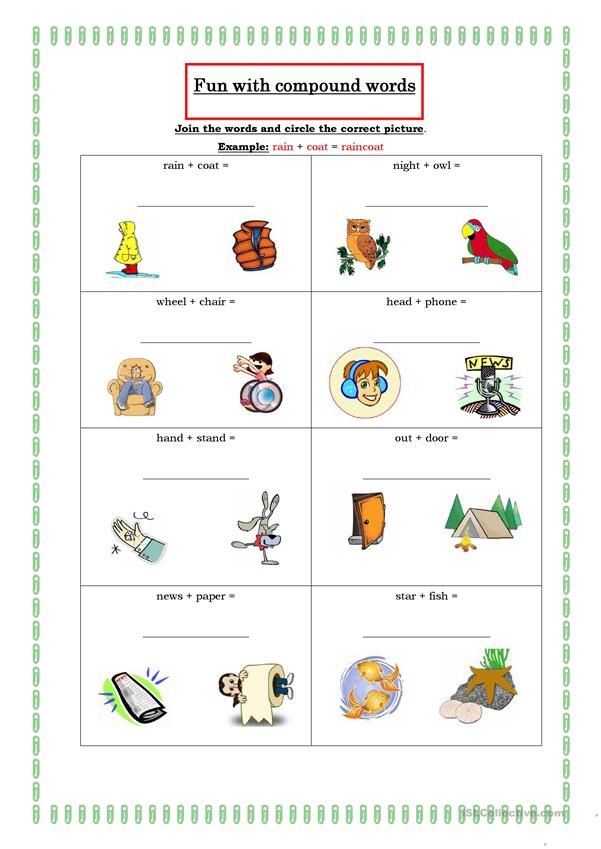
These three TV stars have been on the screen for a long time. One is called Stepan, the second is Philip. What is the name of the third?
Find out the answer
Piggy.
What should you do when you see a green man? nine0003
Find out the answer
Cross the street.
- Is she red?
- No, black.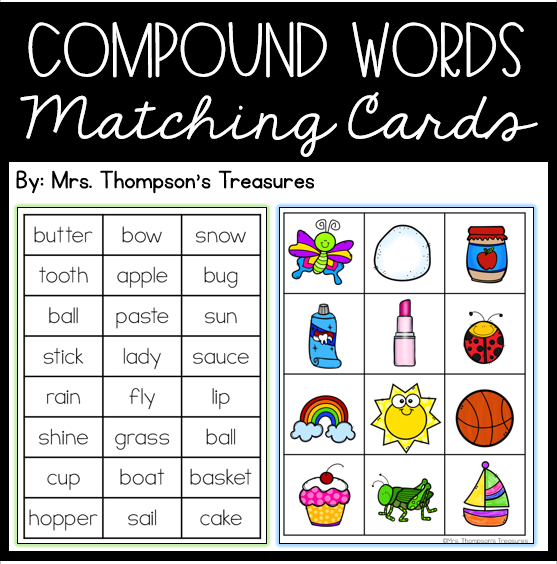
Why is she white now? nine0217 Because it's still green.
What are we talking about?
Find out the answer
Blackcurrant.
Life hack for parents: how to get 20-30 minutes of free time in a day. Offer your child classes on the LogicLike platform. :) nine0003
Select the child's age
to know more
4-5 years old
9-12 years old
What word starts with 3 Gs and ends with 3? the letters "I"? nine0003
Find out the answer
Trigonometry.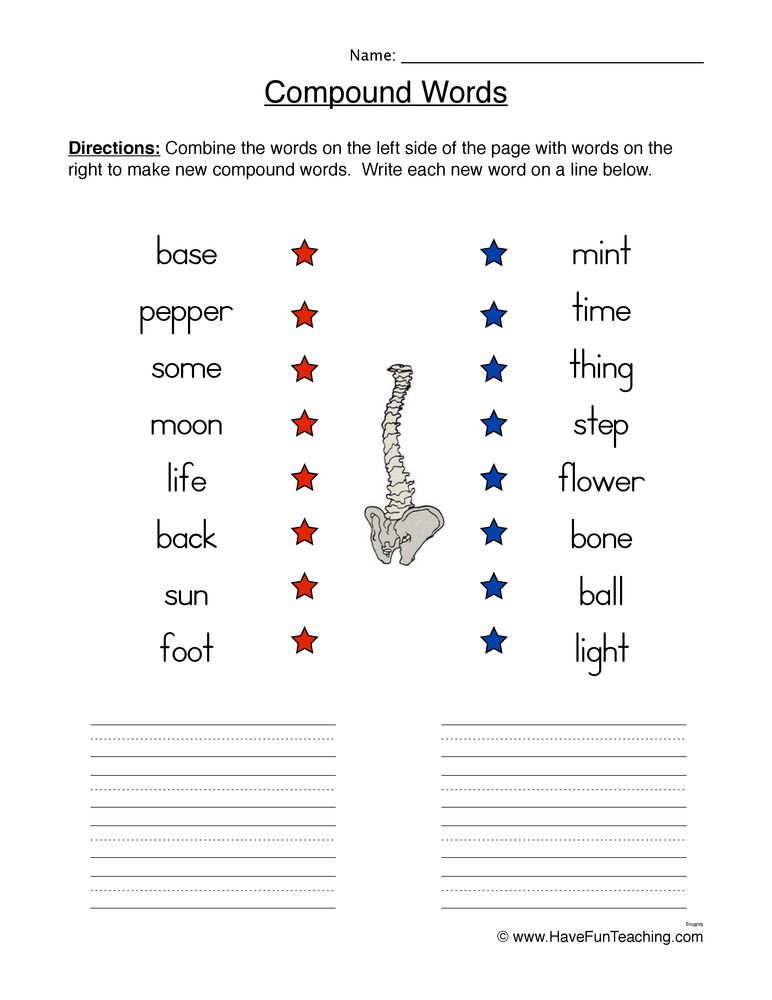
What can at the same time: stand and walk, hang and stand, walk and lie?
Find out the answer nine0003
This is given to us three times. The first two times are free. But for the third one you have to pay.
Find out the answer
The geese went to the watering hole in single file (one after the other). nine0217 One goose looked ahead - there are 17 goals in front of him.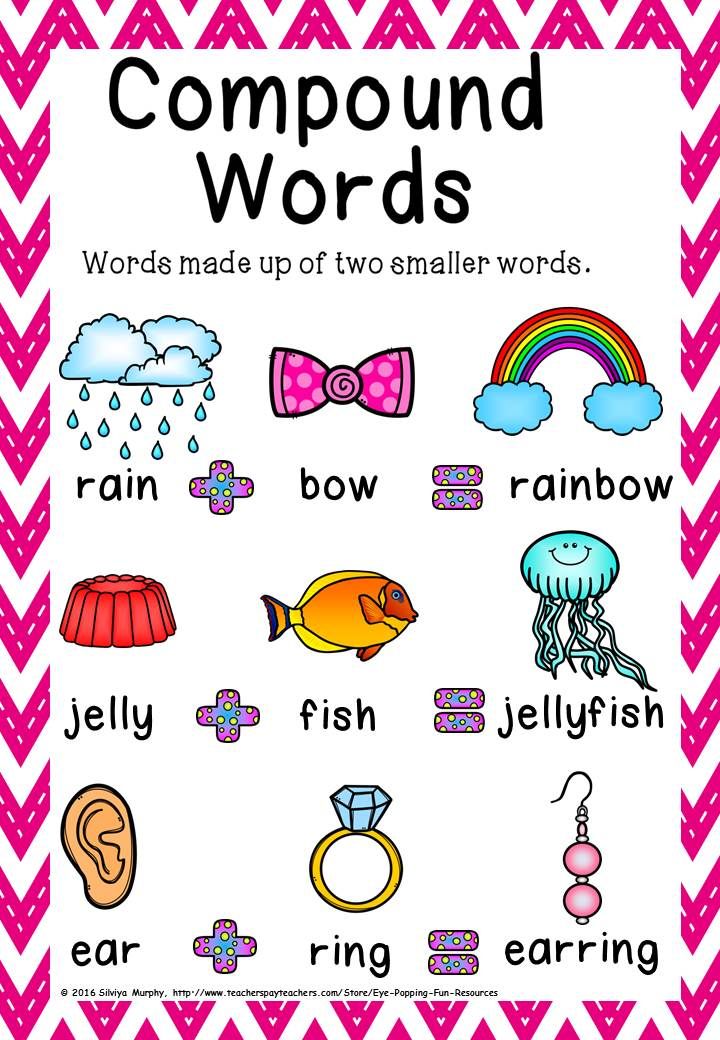 Looked back - behind him 42 paws.
Looked back - behind him 42 paws.
How many geese went to the watering place?
Find out the answer
39. 17 ahead, 21 behind, and the goose itself, which turned its head.
Why LogicLike for an adult?
- Be smart is fashionable Age of "muscles" long gone. Ingenuity and sharpness of mind will come in handy more now. nine0148
- Low entry threshold We are starting With simple puzzles.
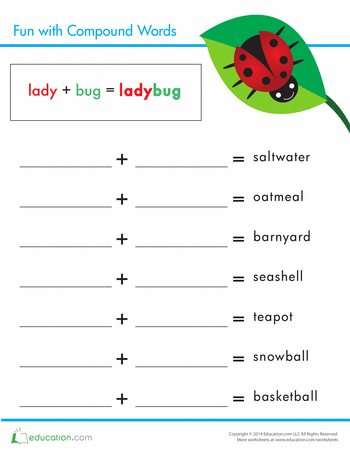 But you can always change the difficulty.
But you can always change the difficulty. - We have no ads This means not you have to spend time waiting for the cross to finally appear. nine0148
- We have fun :) We give awards for correct answers, and we also have a rating of players.
Try our riddles and questions for the whole family! nine0179 A selection of tasks from the training LogicLike course
A caterpillar is no longer than a worm.
A worm is no longer than a caterpillar.
Who is longer?
To decide click Start! nine0003
Sister is older than brother by 3 years.
How many years older will the sister be than the brother in 5 years?
To decide click Start!
What does this pyramid look like from above? nine0003
To decide click Start!
On the LogicLike platform
has everything you were looking for!Riddles for adults for warm-up
nine0002 Riddles with a trickLogic tasks
Difficult riddles to logic
nine0002 Start classes Start classesRiddles with a trick
How many months in a year have 28 days?
Find out the answer nine0003
All months.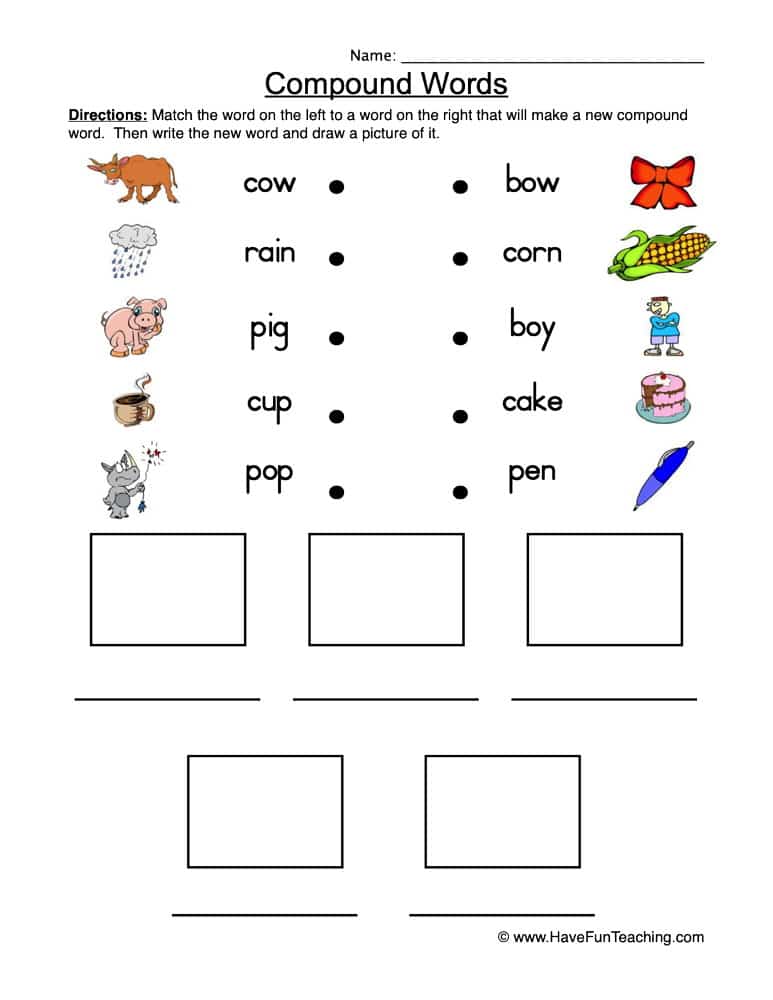
You are sitting in an airplane, a horse is in front of you, a car is behind you. Where are you are you?
Find out the answer
On the carousel.
nine0326 Question for parents
Do you have a child aged 5-12?
Yes
We have developed the most detailed Logic Development Course for children.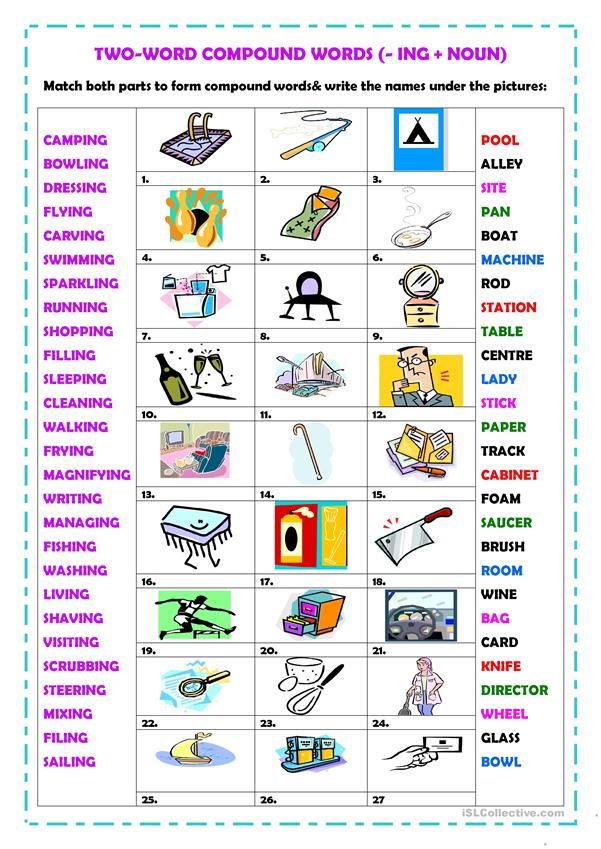
Try classes online! nine0003
Not
On the page we collected a couple of dozen selected riddles that will help entertain and amuse an adult company.
Logic course we originally created for children, but many adults too Like. Try it! :) nine0003
How many programmers does it take to screw in a light bulb?
Find out the answer
None.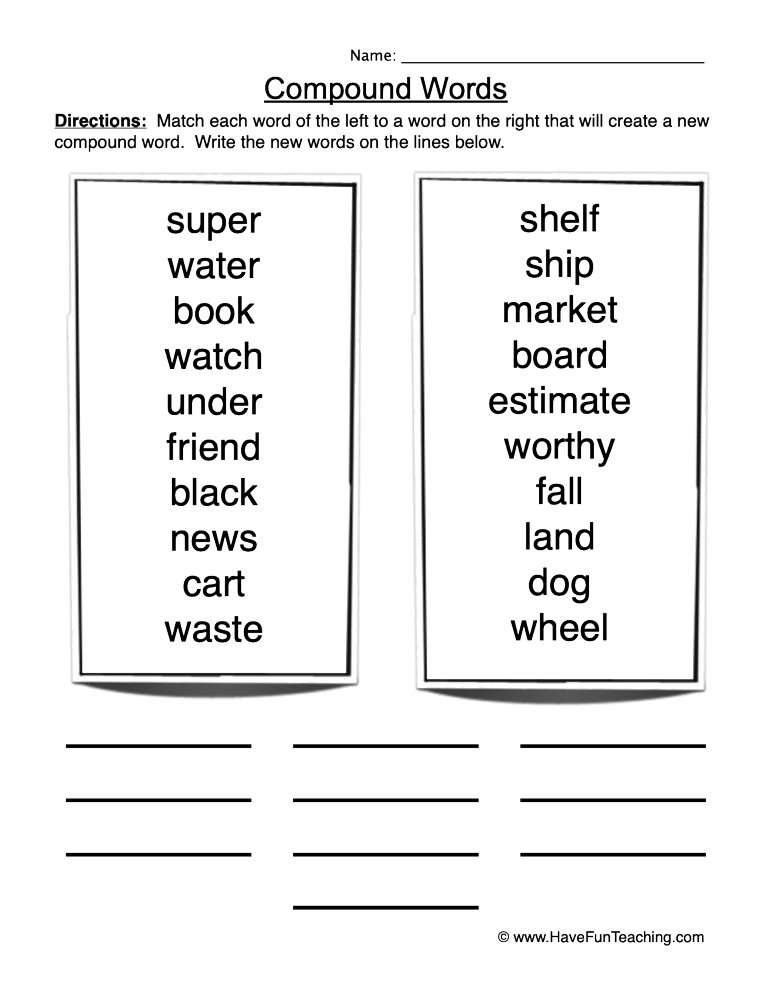 it hardware problem, programmers do not solve them.
it hardware problem, programmers do not solve them.
Which word has 3 L's and 3 P's? nine0003
Find out the answer
Parallelepiped.
Given a 4-letter word, it can also be written 3 letters.
You can usually write it down with 6 letters and then with 5 letters. nine0217 Spawning contained 8 letters, and occasionally consists of 7 letters.
Find out the answer
"Given", "it", "usually", "then", "having spawned", "occasionally". nine0003
Under what condition are 3 boys and 2 girls, 4 adults, 1 dog and 1 cat not get wet, becoming just under 1 umbrella?
Find out the answer
Provided that there will be no rain. nine0003
He may not have children, but he is still a dad. How is this possible?
Find out the answer
This is the Pope.
More trick riddles for kids and adults.


